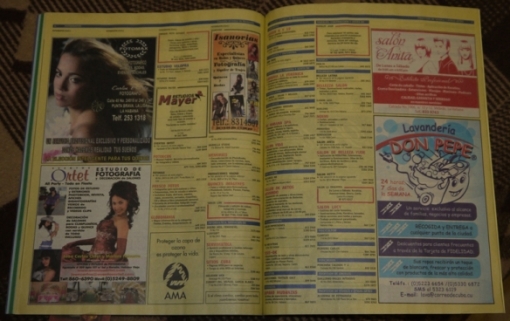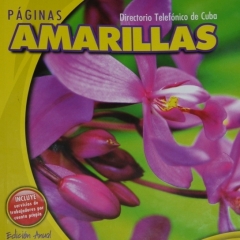The trashed cityscape reaches all the way to the gate of the parish, in the arid Cerro neighborhood. “The Savior of the World,” says the sign, so distant from the desert outside, beyond the gates. And one thinks, sleepwalking before sunrise: how poor any form of expression is in this country.
Dawn lingers on the park benches. The wake is supposed to start at 8:00 am, but there are only the little workers brigades, trying, on this Monday, to make up for decades of decadence: mowers, sprayers, trash collectors which, like the cop cars, pass and pass again without picking up anything. Everyone pretends it’s normal. It’s July 23rd and since yesterday Oswaldo Payá Sardiñas is dead.
They had promised it to him by word and with attacks, which he survived without even realizing it. It doesn’t matter with whom or how they fulfilled their promise. The idea is that there will be no Nobel Peace Prize in Cuba if Fidel Castro doesn’t win it first.
In a nightmarish sequence, Payá’s body, with his 60 years and thousands of signatures collected to reestablish our nation, fell so far away, a province whose name didn’t exist before the Revolution: Granma… An accident among strangers, Europeans with presidential ambitions who now will be anything but witnesses to the truth. A catastrophe without the protection of his brave and beautiful family, near this deadly Bayamo of the National Anthem.
It was the end of an era of a deceptive balancing act between the dissidence and the torturers: a declaration of war, although it seems exaggerated. And before so much horror, to the first curious we can only speculate what not even the Christ of the Democrats would dare to type here now: if it was carelessness or a paid assassin, if he died without suffering in the act, or perhaps looked with terror at the paramedics or the paramilitary or both, if he repented and assumed his martyrdom without the final temptation to betray himself.
The hearse traveled from the Oriente to Havana under an insulting sun without optimal conservation measures (or came secretly by air and the delay was only a ploy to pressure his family: living in Cuba is a lot like a police procedural). In the text messages we received and resent like automatons, the funeral was postponed until 11 am, and then to the secret hour permitted by State Security, already mid-afternoon when, amid the cellphones and tears, Oswaldo’s box made its entrance flush with the crowd.
By then the church sheltered almost a whole spontaneous congress of the Cuban opposition, from its media stars to the anonymous infiltrating agents of the last generation. The operation of control this time would play at not interfering with the ceremony and conceded everything his widow asked for (except the resuscitation of her love of 26 years). The irrepressible applause burst forth as the coffin advanced, in an unsuspected consensus from minutes earlier, erasing rancor and caudillos, displaying everyone’s best side before the memory of a good man who saw like no one else the promised land and, not to disprove the Bible, never managed to inhabit it.
It was not a private wake, but every time they felt invaded, the church’s young strongmen limited the labor of the cameras, cautioning us not to disturb “the suffering of the family.” A most dignified pain and more real than any other sentiment I remember in my life. But pain in public and not behind closed doors. That is, a pain that needed to be captured in all its beauty and brutality, in all its strength and fragility, in all its decency and denunciation, until it infected our sleepiest fibers, so that the world would understand the debacle that just occurred on the Island: another death the naturalness of which not even death itself trusts.
When the cries of “Freedom! Freedom” startled the pastor, with a nervous gesture implored the wife to calm the flock. And Ofelia complied in the name of Oswaldo, taking the microphone for the first time, and was instantly obeyed.
But perhaps her husband would have preferred that the music of throats and hands was never quelled, that explosion of sympathy that went from the intimate to the social, that instant plebiscite between indignation and revolutionary: it lacked nothing then to rip out the roots of resignation and appropriate the august corpse to take the Plaza by assault.
Perhaps the Christian Liberation Movement had never counted on such a quorum and this posthumously late, between grief and fear, compelled to say goodbye to their leader with more than incense and rosaries. An instant later, silence, it was obvious that we thousands gathered there will never play a leading role among the people, and the death of Oswaldo Payá Sardiñas will be diluted in the government statistics of the Traffic Division.
Foreign broadcasters crowded in line hoping for my cell phone, while I chronicled tweet by tweet trying to be the eyes and the heart of an ever more desperate diaspora. In exhaustive detail, exhausted. I took eleven million photos and video clips, approach the main altar where the coffin rested with wreaths of flowers and a flag, but I never joined the infinite line expressing condolences to his family for hours.
Perched dangerously above Oswaldo Payá Sardiñas, I saw his bruised face reminiscent of a fight, a trickle of blood without a biography flowing from his mind, his chest sunken under his Cuban shirt, his smile disappeared, his eyelids stoned, and I trembled before the remains whom I had admired from my ignorance and whom I defrauded before reading it by not signing the most virtuous Varela Project and in exchange, indeed, the socialist mummification of our Constitution, an anti-constitutional outburst with which Fidel Castro took his personal revenge on him.
His daughter Rosa María, whom I had heard on the underground radio like a miracle of courage and faith in human justice, emphatically imposed on me without knowing me, “I don’t want photos of my father’s face.” But I treasured much more than that. I had managed to cry softly, moved by so much helplessness among my contemporaries, infinitesimal beings when not infantilized, at the intemperance of a State incapable of communicating a single word to us, except those of our stigmatization by decree (and at this same time they humiliated the Payá Acevedo family with vicious vermin on the web, without a note of protest coming from the Catholic Church nor from any other denomination).
With the setting of the sun came the Eucharist and then followed the deepest midnight. I hadn’t eaten or drunk anything. I was tired and my clothes were drenched by the vile summer. My Nokia and Canon batteries had given out. I went home and looked at my mother, who still suspected nothing, and gave her a hug as if suddenly it was me who would never come home again. I don’t want my accident to catch me without having said I love you to those I love.
But totalitarianism is exactly that surprise, you can always be removed from their spaces: from the cradle to school to high school to the brigade to the hut to the desk to the prison cell to the firing squad wall to the ambulance to the chapel to exile to heaven to the pantheon.
I returned to The Savior of the World church and lay down on the Plaza Galicia’s benches, amid the sacred snores of some Ladies in White. Inside the temple a few crestfallen mourners slept. I felt unpunished, indolent, and wanted to take the flag off the coffin, this heroic rag shared by saints and soldiers. Cuba tired. Outside was the most beautiful morning. The ceiba trees, a fingernail moon, the damp chill misting the pale streetlights and my eyelashes: this time there were tears without crying, a salt trickle flowing from my backward mind. Why do I stay in this citizenless cenotaph? They make you want to flee and not be killed. But, as long as I am free of so much hopelessness, I was enamored of those few words dictated despotically be despair, and now I came back for more photos of her father’s soul.
Tuesday dawned, and not having breakfast or perhaps the Cardinal’s weather made me want to vomit. Jaime Ortega y Alamino demagogued that “the aspiration to participate in the political life of the nation is a right and a duty of a lay Christian,” and even dared to quote Pope Benedict XVI who, when in Havana, had time to greet tyrannical atheists but not a lay Christian democrat with the last name of Payá: “let no one be impeded from joining this enthralling work by the limitation of their fundamental freedoms.” I had already heard this quoted on the jail TV, in His Holy Manipulated Mass of the month of March, and with hundreds of Cubans jailed on a prophylactically Catholic basis, with the consent of his spokesman Orlando Márquez in the Communist Party newspaper named with the same six letter word of accidental death as that unfortunate province: Granma…
All ritual is reiteration. Botched, yawn. But at the end of the funeral liturgy she returned to speak, there, a sliver of unspeakable Cuban truth. Rosa María Payá spoke with more spirit than a half century of erudite fakers. She accused without panic, although she was preparing her own gallows. She left hatred outside her discourse like the testament of a twenty something in terminal danger. From the elementary particle, the divine word, wherein is incarnated the mute honor — the prostituted honor — of this nation. The bishops stared at the infinite, faceless, masks of glass of those who couldn’t throw even the final stone. And then her mother Ofelia Acevedo, with a manifesto that claimed the right to fight from the peaceful opposition to be free beings in Cuba and not to die in the attempt.
Minutes later, a few yards away, the rapid response mobs and the police beat dozens of those present who, for trying to accompany the coffin on foot, never made it to the cemetery. Nor to their homes.
Rather than narrating the standing ovation goodbye at the cemetery, I would like to end with the horror still coagulating over the surviving witnesses from the rental car where Payá and his young collaborator Harold Cepero died. From promising European politicians, Ángel Carromero and Jens Aron Modig have become victims of verisimilitude for life. Whatever they say at this time of mystery and misery, their declarations will now echo with intrigue, traps, torture. I affirm it with the sarcasm of my own involuntary sacrifice: if both of them were to agree now that a flying saucer with the initials INRI* bombarded them on leaving Bayamo, their alibi would sound more sincere and less vulturous.
We Cubans do ourselves in. Cuba buries us. I haven’t slept a wink since then. Insomnia is a very persistent thing. Rest in peace if you can, first president of the country who wasn’t. What’s wrong with us.
*Translator’s note: Cuba’s Foreign Ministry
From Diario de Cuba.
July 28 2012












